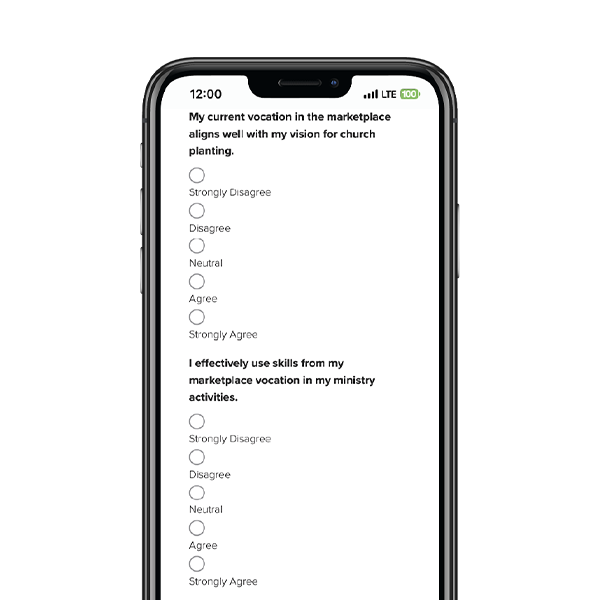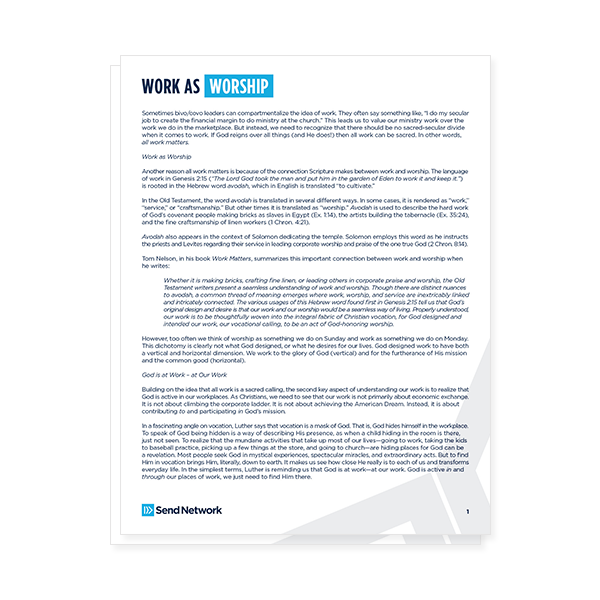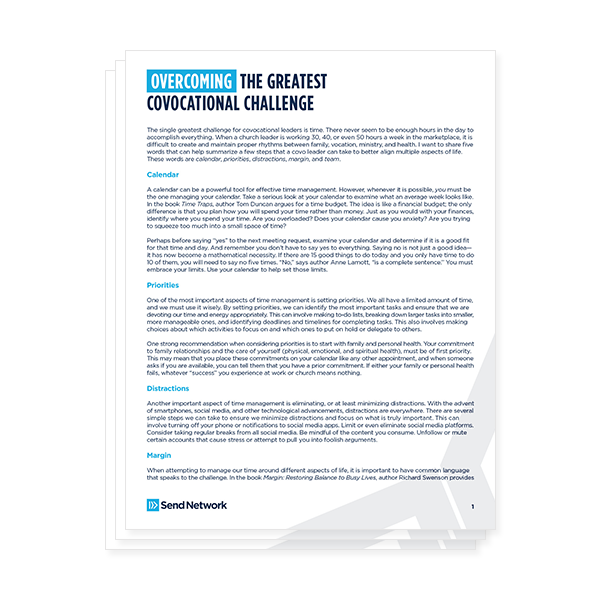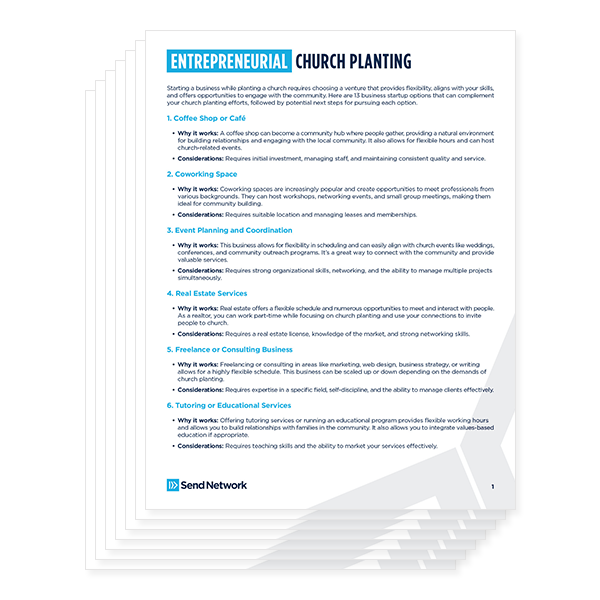Counseling in the local church can be a daunting task, riddled with complexities on numerous issues such as liability, referrals, the place of medicine, and other thorny topics of discussion. In fact, when the leaders of your congregation begin wading through these matters, you will find that many godly men and women have differing opinions about root problems and the “biblical” solutions.
Should we simply throw our hands up and walk away? After all, where do we begin if so many differing ideas within the body of Christ dominate this conversation? These questions have become so pressing that we hosted a panel discussion at the 2014 SBC, featuring Brad Hambrick, Frank Page, and Ed Stetzer (Click here for the audio). Also, Frank Page formed a Mental Health Advisory Group to prepare a report for the Executive Committee to address these issues.
Ultimately, we know one thing: we cannot overlook the pain of people experiencing mental and emotional suffering and say that we have proclaimed the lordship of Christ in a holistic way. We have to do something! As Christ’s body, we must look at people in need of gospel-driven counseling as harassed and helpless, in need of Christ’s peace to replace their anguish. Assuming that we agree that we agree on this point, the question then becomes “what.”
Let me suggest that we should begin addressing the question of church-based counseling ministries with the issue of competency. How can your church competently minister to people hurting around you at this moment? Follow the links included below to explore the realities of several approaches to counseling that are meant to be a part of a church’s ministry. Also, for churches interested in learning more about how to develop a formal lay care ministry, The Summit Church offers an upcoming conference that I highly recommend: https://www.summitrdu.com/counseling-workshop/.
Here are five categories—followed by a brief description and a few resources for each category—Brad Hambrick identifies to help churches begin answering this question. While the lists of resources under each category are not exhaustive, they will help you begin exploring the specific approach to counseling ministry your church chooses to offer. (*NOTE: For a deeper look at these approaches, see this excerpt from a chapter he wrote in Scripture and Counseling, which released late 2014)
Categories of Counseling Ministry
- One Another Ministry
- Various Forms of Formal Lay Counseling
- Graduate Intern Level Counselors
- Formally Trained General Practitioners
- Counseling Specialists
1. One Another Ministry
Every church already has a one-another level ministry. This is simply people caring for one another as they “do life together,” including ministries that emphasize accountability relationships.
- Stephen’s Ministry (https://www.stephenministries.org) This ministry bridges between one another ministry and formal lay counseling. However, since Stephen’s Ministry is the least formal programatized resource we surveyed, we placed it in this category.
- Instruments in the Redeemer’s Hand by Paul Tripp
- Redemption by Mike Wilkerson
- Gospel Coach by Scott Thomas and Tom Wood
- Peacemaker by Ken Sande
- Restoring the Fallen by Earl & Sandy Wilson, Paul & Virginia Friesen, Larry & Nancy Paulson
- Covenant Eyes (https://www.covenanteyes.com/)
- Setting Captives Free (https://www.settingcaptivesfree.com/)
- Here is a resource (https://www.bradhambrick.com/accountability) outlining the key factors in healthy, lasting accountability.
2. Various Forms of Formal Lay Counseling
The resources below are intended to provide group or mentoring format counseling in which lay people use their personal experience with a given life struggle or transition to facilitate someone else’s journey through a similar experience.
- Celebrate Recovery (https://www.celebraterecovery.com/) represents the most well-known and well-structures of the Christian 12 step models.
- GriefShare (https://www.griefshare.org/), DivorceCare (https://www.divorcecare.org/), and Single & Parenting (https://www.singleandparenting.org/) are short-term group curriculum published by Church Initiative that use a video based format.
- Thrive Curriculum (https://mentalhealthgracealliance.org/is a mental health recovery workbook and coaching program developed by Dr. Matthew Stanford for those diagnosed with a mental health disorder or dealing with overwhelming stress affecting your mental health. Similar resources are available for family and friends.
- Mending the Soul (https://mendingthesoul.org/) is dedicated to equipping and resourcing community and church leaders around the world in an informed and compassionate response to those impacted by abuse.
- Family Life Marriage Mentoring (https://www.familylife.com/ementoring) is program to develop marriage mentors.
- GCMarriage Pre-Marital Mentoring (www.bradhambrick.com/gcm) is a program to develop pre-marital mentors.
- Freedom Groups (www.bradhambrick.com/videos) are struggle-specific small groups where individuals commit to investing a season of their life in overcoming a particular life-dominating struggle of sin or suffering.
There are also several organizations that offer certification for lay counselors.
- AACC – American Association of Christian Counselors (https://www.aacc.net/courses/)
- ABC – Association of Biblical Counselors (https://christiancounseling.com/content/equipping-churches#certification)
- ACBC – Association of Certified Biblical Counselors (https://www.biblicalcounseling.com/certification/)
- CCEF – Christian Counseling and Education Foundation (https://www.ccef.org/courses/certificates)
Examples of churches using these certificate level counselors include:
- Harvest Bible Chapel in Elgin, IL (https://www.harvestbiblechapel.org/10780/ministry/ministry_id/271029/Biblical-Soul-Care)
- Faith Church in Lafayette, IN (https://www.faithlafayette.org/counseling/need_counseling)
- Sojourn Community Church in Louisville, KY (https://sojournchurch.com/next-steps/care-counsel/)
- Christ Chapel Bible Church in Fort Worth, TX (https://www.ccbcfamily.org/connecting/adults/soul-care/)
3. Graduate Intern Level Counselors
This layer of counseling would entail a partnership between a local and neighboring seminary or graduate school.
- The Summit Church in Durham, NC (https://www.summitrdu.com/connect/counseling/graduate-intern-counseling/)
- New Orleans Baptist Theological Seminary in New Orleans, LA (https://www.nobts.edu/students/CounselingServices.html)
4. Formally Trained General Practitioners
These are counselors serving as part of a church or parachurch ministry staff to offer services to the community. These examples will help you identify comparably trained counselors in your area or to help your church identify ministry models that are the best fit for your context.
- Austin Stone in Austin, TX (https://www.austinstonecounseling.org/)
- Bridgehaven in Durham, NC (https://www.bridgehavencounseling.org/)
- Capitol Hill Baptist Church (https://www.capitolhillbaptist.org/we-equip/adults/counseling/)
- CCEF (https://www.ccef.org/counseling)
- HeartSong in Washington DC and other cities (https://www.heartsongcounseling.org/)
- HeartLife Professional Soul Care (https://www.heartlifesoulcare.org/)
- Meier Clinics (https://www.meierclinics.com/)
5. Counseling Specialists
These are individuals or ministries that have intensive training and programming to deal with the severe expressions of various life dominating struggles.
- Twelve Stones in Helmsburg, IN (https://twelvestones.org/)
- Pure Life Ministries in Dry Ridge, KY (https://www.purelifeministries.org/)
- Vision of Hope in Lafayette, IN (https://www.faithlafayette.org/voh)
- National House of Hope (https://www.nationalhouseofhope.org)
- Sexual Identity Institute in Virginia Beach, VA (https://www.sexualidentityinstitute.org)
Hopefully, this blog post enable you to see several categories of counseling ministry that your church can offer to your community. My guess is that most churches have a counseling ministry, such as the one another ministry described above, but several questions remain.
Is your church competent in your current offering—formal or informal—of counseling ministry? How can your church become more competent in the specific approach your people are able to do at this point? Should you cultivate another approach to counseling ministry in your church to enhance your current counseling ministry? Whichever form of counseling your church takes, may your people be known as those who offer mercy and peace to people who are helpless and harassed.
Published February 3, 2015




